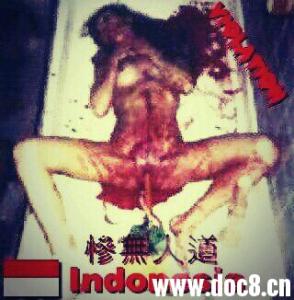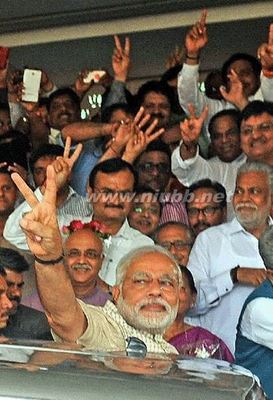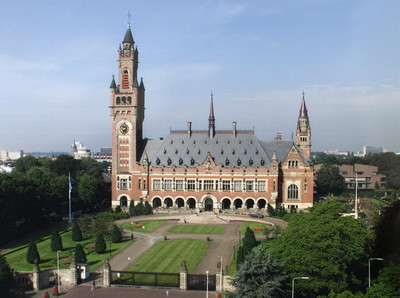不过大家态度转变的非常大。
可以体会。
几年前答主在收集这个事件的相关资料的时候确实被震惊到了。
手段之残忍,规模之浩大,着实超出常人所能及。
百度:印尼屠华事件照片解禁 就可以看到部分照片,有些已经不算什么了。(鉴于行径实在太恶劣血腥,不太适合放在这里,大家可以自行搜索)
(评论有人说98和65不一样,确实有政党之分,目前一个流行说法就是65是屠亲大陆的,98是屠亲台湾的。但事实是常常平民百姓见到就杀,就洗劫,就强奸,分个屁!大家都是老百姓,为了一个国籍争论而忽视最基本的人道吗?何况大家还是同根同族的中华儿女!)
另外,确实如一些答案之所言,中国政府在98屠华中表现了最大程度的努力,尽管事实真相可能不会被大众知晓。
我相信越来越强大的中国才是避免此类事件发生的根本因素。
wiki: 印尼华人
我相信不用翻译了吧
摘录部分如下:
Loyalty in question (1950–1966)[]
The Netherlands relinquished its territorial claims in the archipelago (with the exception of ) following the , which is the same year that the retreated to Taiwan, allowing the to take control of mainland China. Most Chinese Indonesians considered a communist China less attractive than a newly independent Indonesia, but in the archipelago their loyalties were questioned. Ethnic Chinese born in the Dutch East Indies whose parents were under Dutch administration were regarded as citizens of the new state according to the principle of , or "right of the soil".
However, Chinese law considered a person as a Chinese citizen according to the principle of , or right of blood. This meant that all Indonesian citizens of Chinese descent were also claimed as citizens by the People's Republic of China. After several attempts by both governments to resolve this issue, Indonesia and China signed a on the sidelines of the 1955 in . One of its provisions was the ability to renounce Chinese citizenship for those who wished to solely remain Indonesian citizens.They had thought they were unwanted in Southeast Asia because they were Chinese; then they were rejected in China because they were Indonesian.

—
As many as 390,000 ethnic Chinese, two-thirds of those with rightful claims to Indonesian citizenship renounced their Chinese status when the treaty came into effect in 1962.
On the other hand, an estimated 60,000 ethnic Chinese students left for the People's Republic of China in the 1950s and early 1960s. The first wave of students were almost entirely educated in Chinese-language schools, but were not able to find opportunities for tertiary education in Indonesia. Seeking quality scientific professions, they entered China with high hopes for their future and that of the mainland. Subsequent migrations occurred in 1960 as part of a repatriation program and in 1965–1966 following a series of that also drew anger toward the ethnic Chinese. As many as 80 percent of the original students who entered the mainland eventually became refugees in Hong Kong. Under the programs of China's (1966–1976), the returned overseas Chinese were questioned for their loyalty because of their foreign connections. As most had grown up in an urban environment they were sent to the countryside, told to "rebel against their own class background", and eventually lost contact with their families. They were attacked as "imperialists", "capitalists", "spies", "half-breeds", and "foreign devils".Restrictions on rural non-indigenous retail businesses in 1959 led to rapid urbanization of the ethnic Chinese community.
In 1959, following the introduction of soft- rule through , the Indonesian government and military began placing restrictions on residence and trade. These regulations culminated in the enactment of in November 1959, banning retail services by non-indigenous persons in rural areas. Ethnic Chinese, , and Dutch businessmen were specifically targeted during its enforcement to provide a more favorable market for indigenous businesses.
This move was met with protests from the Chinese government and some circles of Indonesian society. Javanese writer later criticized the policies in his 1961 book . An movement, led by the Chinese-Indonesian political party (Badan Permusjawaratan Kewarganegaraan Indonesia), began to gather interest in 1963, including that of President . However, a series of attacks on ethnic Chinese communities in in May proved it to be short-lived, despite the government's condemnation of the violence. When Baperki was branded a communist organization in 1965 the ethnic Chinese were implicated by association; this was exacerbated in the public mind by the People's Republic of China's communism. As many as 500,000 people, the majority of them Javanese Muslims and Balinese Indonesians but including a minority of several thousand ethnic Chinese, were killed in which followed the , suspected as being communist-led, on 30 September 1965.大家其实不必过多关注这几次事件的政党之争,坑的都是普通老百姓,再当时的环境下,人人自危,谁敢说我去投奔大陆就一定能脱离危险?同理,国籍之争也无必要,当时也没多少人能看到祖国现在之强大吧?如果现在发生这种事,如果能发生的话,大家相比都知道该怎么办了吧?
不得不说印尼两次屠杀事件,其恶劣行径堪比南京大屠杀。有之过而无不及。反人类罪,一点也不过分。
答主恰好在数天之前看到这篇文章,分析的国际因素不错,以下摘录部分:
印尼华人何罪,遭受如此兽行,每次印尼发生权力斗争的时候他们都成了牺牲品。很长时间印尼政府对此采取坐视不理的态度,似乎有意使华人成为民众宣泄愤怒的替罪羊。
迄今为止,印尼上世纪爆发的二次屠华事件,因为有印尼军方的参与(其至今掌权具影响力,印尼国防部长利亚米萨的言论就具有印尼军方的代表性),一直没有得到追究和严惩,假若1965年那次屠华,国际社会提起诉讼,就不可能在1998年再次重演屠华事件,笔者可以预测,一旦国际形势逆转,只要印尼军方的屠华元凶不被绳之于法,仍广泛存在于印尼军方思想的血腥因子,肯定会导致第三次屠华再次发生,2016年6月3日印尼国防部长的言论就是一个警号,“死有余辜”的另一层意思就是还要再死一次。
笔者认为,有组织的团体煽动只是表面而已,这些团队背后的支持者才是令人关注的。这些反人类事件,一是破坏国际关系,二是“去华人化”。所谓传播共产主义思想只是借口而已。不排除是域外组织与印尼激进组织各取所需。
1998年11月25日,新加坡联合早报发表社论《评印尼5月骚乱调查报告》。笔者认为,中国应该就1965年,1998年二次屠华事件,对印尼提起反人类诉讼。国际海牙法庭不是喜欢告别国总统“反人类罪”吗?为何对印尼二次屠华视若无睹?华人的命不是命,华人就该死吗?印尼的二次屠华完全符合“反人类罪”:
危害人类罪(英语:Crimes Against Humanity),旧译为“违反人道罪”,又译为“反人类罪”,于2002年7月1日生效的《国际刑事法院罗马规约》(Rome Statute ofInternational Criminal Court)将该罪名中文译名确定为“危害人类罪”。规约中的定义为“是指那些针对人性尊严极其严重的侵犯与凌辱的众多行为构成的事实。这些一般不是孤立或偶发的事件,或是出于政府的政策,或是实施了一系列被政府允许的暴行。如针对民众实施的谋杀,种族灭绝,酷刑,强奸,政治性的、种族性的或宗教性的迫害,以及其他非人道的行为”。
大家看,印尼的二次屠华,哪一点不符合上述的罪行?难道靠凶手一句“死有余辜”就能免责吗?国际海牙法庭还懂得公义吗?西方主导的国际法庭,若如其把人权挂在嘴边,就应该追究制造印尼屠华事件的幕后元凶,而不是不闻不问,至少也要缺席审判,彰显人类公义!而有人可能会说,时间隔了那么久,还有法律效力吗?笔者认为,人类公义是没有时效限制的。这里,不妨提一下最近另一则新闻:
2016年6月2日,德国联邦议院将奥斯曼帝国一战期间即1915年对于亚美尼亚人的大规模屠杀定性为“种族灭绝”。当时,奥斯曼帝国的亚美尼亚人被当作“内奸”遭驱逐及杀害(男人全杀,女人改信宗教及配种繁衍则可免死)。尽管被害者具体数字不明,但据历史学家公认的看法,当时大约有20万到150万亚美尼亚人遇害。作为奥斯曼帝国的继承者,土耳其政府一直拒绝将这一事件称作“种族屠杀”,社会对此也讳莫如深。可见,伸张正义是天网恢恢,疏而不漏。
或许,涉及国际大国角力,作为中国政府未必能在当前亚太的暴风雨前夕挑起此历史伤疤,而印尼军方也正是觉得中国有求于印尼制衡美国而毫无人性地发表“死有余辜”的言论。但中国外交部应该有所表态,同时应该成立二次大屠杀受害者亲属组织,每年定期举行集会纪念,就算国际组织不处理,至少也有国际民间压力制约印尼军方,以及制约其他有排华倾向的国家。给近百万受害者一个慰籍。战略上,占据道德高地的中国,同样可以利用此事施压,牵制印尼,最大的战略得益是可以得到全世界华侨华人的拥护,利于当前的国际大环境。中央政府与全球华人的心心相连相对于中印尼关系,重要性不言而喻。美国不是要中国体现大国责任吗?那中国就先体现对黄帝子孙的责任吧!
(2016.6.5 作者为澳洲《新市场报》专栏作者) 1/2 1 2 下一页 尾页
 爱华网
爱华网


